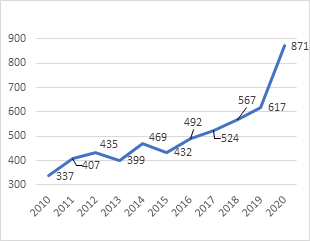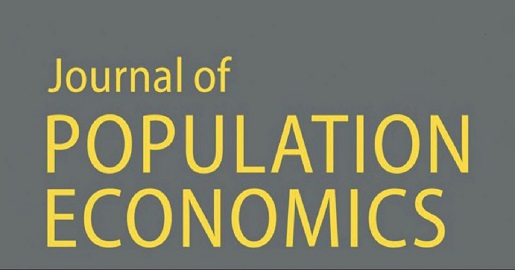The meta-analysis provided in a new paper published ONLINE FIRST freely accessible finds that gay men earned less than heterosexual men; lesbian women earned more than heterosexual women, while bisexual men earned less than heterosexual men.
Sexual Orientation and Earnings. A Meta-Analysis 2012-2020.
by Drydakis, Nick
Published ONLINE FIRST 2021: Journal of Population Economics
FREE READLINK: https://rdcu.be/cpeNT


Author Abstract: This meta-analysis utilizes 24 papers published between 2012-2020 that focus on earnings differences by sexual orientation. The papers cover the period between 1991 and 2018, and countries in Europe, North America and Australia. The meta-analysis indicates that gay men earned less than heterosexual men. Lesbian women earned more than heterosexual women, while bisexual men earned less than heterosexual men. Bisexual women earned less than heterosexual women. According to the meta-analysis, in data sets after 2010, gay men and bisexual men and women continue to experience earnings penalties, while lesbian women continue to experience earnings premiums. Τhe meta-regression estimates indicate relationships between study characteristics and the estimated earnings effects for sexual minorities. For instance, regions, sexual minority data set sizes, and earnings classifications influence the outcomes. The persistence of earnings penalties for gay men and bisexual men and women in the face of anti-discrimination policies represents a cause for concern and indicates the need for comprehensive legislation and workplace guidelines to guarantee that people receive fair pay and not experience any form of workplace inequality simply because of their sexual orientation.
GLO Discussion Paper No. 862, 2021 (Download PDF)

EiC Report 2020
SSCI IMPACT FACTOR 2.813 (2020) from 1.840 (2019) & 1.253 (2018)
SSCI 5-Year Impact Factor 3.318 (2020) from 2.353 (2019) & 2.072 (2018)
Journal of Population Economics
Access to the recently published Volume 34, Issue 3, July 2021.
LEAD ARTICLE OF ISSUE 3, 2021:
The safest time to fly: pandemic response in the era of Fox News
by Maxim Ananyev, Michael Poyker and Yuan Tian
OPEN ACCESS: Free Readlink – Download PDF
The Global Labor Organization (GLO) is an independent, non-partisan and non-governmental organization that functions as an international network and virtual platform to stimulate global research, debate and collaboration.
Ends;

